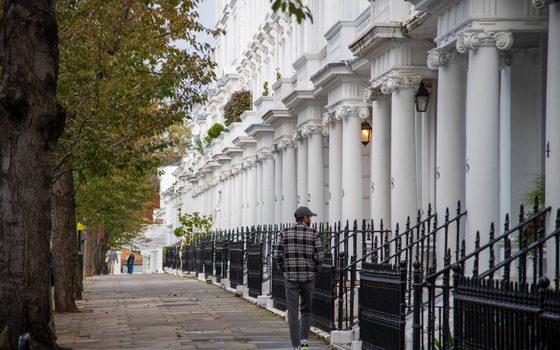From a tug to a kicking
One year on from Donald Trump’s victory, have we learnt any lessons?
08 November 2017
It’s a year since irony ended and the nightmare began.
I still struggle to associate the name Donald J. Trump with the office of US President. I’d prefer to keep pretending that his unsuitability for the role will become apparent to everyone and the facts will win through. Impeachment must be just around the corner.
But that’s wrong as it ignores two important realities. The first is that, just as with Brexit, I can rail against his bizarre nastiness all I like, but Trump was elected by people who are genuinely pissed off with the status quo and chose chaos over the old order. The second is that, however thoroughly the facts surrounding the role of Russia in his election or his sheer incompetence in the job are researched and revealed, pissed off people are unlikely to want to accept that they’ve got it wrong.
Like Brexit, there may be zero chance that a Trump presidency will benefit the people who voted for him. The unfolding story revealed by the Paradise Papers of an elite – including associates of the President – moving their money around the world to avoid tax is as clear a tale of the intentions of his ilk as you could want. How likely is Trump to curb tax havens and avoidance? Very unlikely. In fact he wants to cut taxes for rich people.
If the system has let you down – or if that’s your perception – why would you care how you broke it?
But I’d be willing to bet none of this will cut through in the towns and suburbs where footloose global capital has for decades undermined livelihoods and stolen meaning from ordinary people in a quest for lower costs and fewer constraints. In those places, just as in the UK’s most enthusiastic Leave locations, it will only be read as more establishment or liberal bleating; all the more reason to support disruptive change.
Of course, the paradox of people like Trump (if there is anyone like Trump) attracting the support of America’s working dispossessed is striking. But if the system has let you down – or if that’s your perception – why would you care how you broke it?
Unless something does change, people’s visceral anger with politicians and big businesses that underlies what Orwell called ‘the tug from below’ – currently more like a severe kicking – will continue. However disingenuous Trump’s interest in ordinary people is, and however propelled by biased, populist media his politics are, things aren’t going to get better unless political, business and intellectual elites climb down from their globally-integrated towers and meet people where they are.
I recently argued about this with a friend who more or less accused me of being an apologist for white supremacism when I suggested we needed to do more listening to Trump voters. I find nothing more abhorrent than racism and, for sure, some Trump supporters are out-and-out racists. In fact, at the heart of Trump’s programme is a deep, personal resentment of the Obama years and a seemingly insatiable desire to roll back anything the previous incumbent tried to roll forward, which is hard to believe is not racially-motivated.
But railing against a stereotyped Trumpism won’t change anything much. And unfortunately, while there’s much to celebrate about Obama’s time in office, under his presidency inequality grew – mostly because the very rich got very much richer. People who haven’t benefitted from what Dani Rodrik calls hyper-globalisation may be damned if they vote Trump, but the evidence suggests they were damned anyway, which is a huge problem for politics.
People who haven’t benefitted from hyper-globalisation may be damned if they vote Trump, but the evidence suggests they were damned anyway.
The Guardian’s John Harris recently pointed out that, for Britain’s Brexit towns and cities, very little has changed since the referendum The carousel of global capital continues to whirl, brutal council and public service cuts still squeeze the already heavily squeezed, and with the looming mess that is Universal Credit, things will get worse – yet more reasons to be angry with an elite that has failed.
The outcome in the UK is unlikely to be a sudden realisation that leaving the EU is more a bullet in the foot than a shot in the arm. Even if Trump is deposed, if underlying economic conditions haven’t changed neither will the politics.
As Harris also notes, though they may not represent any coherent political movement nor hold the values metropolitan liberals would support and celebrate, people in pro-Brexit regions are at the heart of what might happen next in our politically febrile times. That’s why at the New Economics Foundation we’re working with coastal communities to build stronger local economies, and highlighting the huge divide between towns and cities.
The same is true in the US. Dismiss the Trump voter at your peril!
None of that means we should appease Trump or give up on progressive social values. But until we’ve listened and understood what’s really behind the tug from below, I fear that people will keep on kicking. And as long as such deep dissatisfaction persists, demagogues and opportunists like Trump will prosper.






